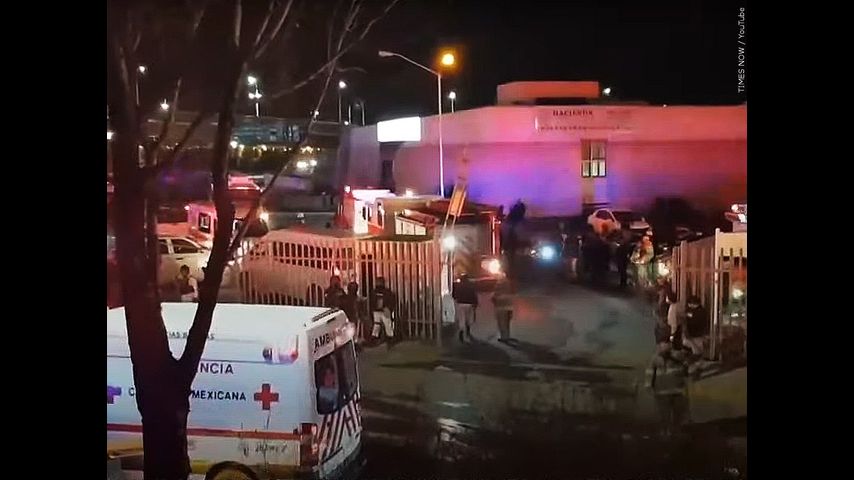Mexico arrests 2nd migrant in detention center fire that killed 40
MEXICO CITY (AP) — Mexican authorities have arrested a second migrant for his alleged involvement in a March fire set inside a border detention center that left 40 migrants dead and dozens injured, two federal officials said Friday.
One of the officials, who both requested anonymity because they were not authorized to speak about the arrest publicly, said the Venezuelan man was arrested Thursday night at a hotel in Ciudad Juarez where federal authorities had been housing migrants discharged from hospitals.
On March 27, a small number of the migrants being held in the detention facility across the border from El Paso, Texas, started a fire in their cell apparently to protest conditions. Their highly flammable mattresses quickly filled the area with smoke and guards fled without unlocking their cell.
Most of the victims were Central Americans and Venezuelans.
The head of Mexico's National Immigration Institute Francisco Garduño and another high-ranking official face charges related to a failure to perform their duties of protecting migrants in custody. Despite prosecutors' requests to remove them from their positions, they have remained free and in their jobs.
President Andrés Manuel López Obrador, a long-time friend of Garduño, has defended him.
Six other immigration officials have been charged with homicide and causing injury, including a retired Army officer who was the immigration agency's top official in Chihuahua state, where Ciudad Juarez is located. Those officials, as well as a private security guard at the facility and another Venezuelan migrant also charged with starting the fire, have been held in jail awaiting trial.
Prosecutors are also investigating possible corruption in the awarding of the private security contract for the facility and "a pattern of irresponsibility and repeated omissions" by the agency over years.
Following the fire, which was the deadliest ever at a Mexican immigration facility, the National Immigration Institute closed its small and medium-sized detention centers across the country and began a review of conditions at the largest ones.





